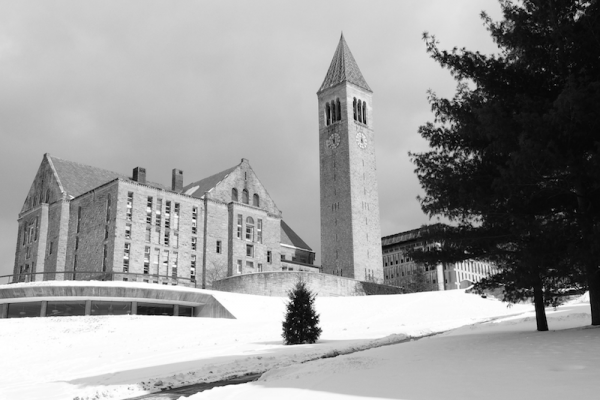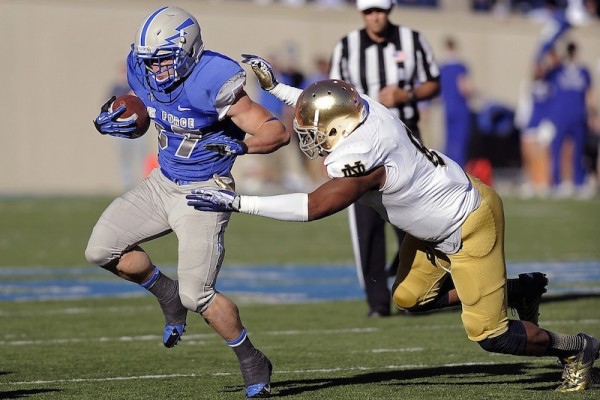I recently had the opportunity to video chat with Michelle Brown, who graduated from Johns Hopkins in 2008, then went on to medical school at Chapel Hill – University of North Carolina, and is currently finishing up her doctor residency at The University of Chicago.
1. When did you graduate and what degree did you get?
I graduated in 2008 with a Bachelor’s of arts in neuroscience. I had two minors: one in music (I play French Horn) and one in theatre arts and studies.
2. What did you like most and least about your professors at Johns Hopkins?
The best part is that every single faculty member you meet there is a world-renowned researcher and has a huge breadth of topics they’re researching. You can find someone to do research in any area you want to do and everyone is really interested in helping students research whatever they want.
For some larger classes, for example, premed heavy classes – they were really big so it didn’t feel like you had a lot of one-on-one time with the professors. So, I never got a feeling that my professors didn’t care, but it was hard to build that connection in those larger classes.
3. What did you like most and least about campus (physically)?
Campus is beautiful – its like a little island oasis in Baltimore. It feels like you are on the campus of a northeastern liberal arts college, cherry blossoms, brick with marble trim – classically beautiful.
One of my minors was in music and so I had to go to the Peabody campus, which was in a different part of Baltimore. They had shuttle busses running from the main campus there, but they didn’t always run when you needed them. So I guess, the fact that its not all in one place could be considered a negative thing.
4. What 3 words sum up Johns Hopkins to you?
First is dedicated. Students are really passionate and dedicated to studying their craft at a deeper level. Many of them are actually doing research in the field that they’re studying.
Diversity is another one. A lot of people don’t really think that – most people think Johns Hopkins is a premed factory, but it also has an incredible history program, romance language department, writing department; social sciences and humanities are also very strong at Hopkins.
Third would be International. There are campuses in Italy and China, professors are from all over the world, and you interact with people from all over the world when you’re there, so you address issues that affect people internationally. There’s a really global attitude and focus on the types of problems you study at Hopkins.
5. Is JHU more introverted or extraverted?
More introverted. A lot of the work that it fosters is more research-based, which is more independent. There is a lot of critical thinking going on, but that is a more inward facing activity. Its not the same kind of environment as a big 10 or state school, it’s a smaller place.
6. What’s the most important thing that JHU has given to you?
Hopkins was really a place that challenged me the most. I went from breezing through my public high school in Florida and jumped into the high expectations of Hopkins. I really learned how to study well and prepare and really dive into material and know it very well. It was a lot of work, in terms of the way that prepared me for future endeavours.
7. What is the culture of JHU like? Is it very academic? Do they value community service in their culture? Is community service bigger than academia?
I think there is a large component of community service to the community of Baltimore, but also a large focus on international community service. For example, Hopkins’ Center for Social Concern is an umbrella that reaches out to the Baltimore community, bringing dances to underprivileged schools in Baltimore, offering afterschool programs where youths come to campus after school to play and hang out with college students, but also they can get tutoring, and help doing their homework.
This has only gotten bigger since Black Lives Matter (2012). There has been an influx of inequity driven social endeavours that have popped up in the past 5 years. There has always been a kind of awareness that Hopkins is an area of privilege within Baltimore – that’s why they need to give back. There is a lot of international based community and medical service that happens, like going into underdeveloped countries and starting projects like building wells, providing clean drinking water and healthcare.
8. How was your dormitory life at JHU?
Dorm life (::big sigh::). There was a big renewed interest in revamping some dorms right around when I was there, which I assume they’ve finished now. Charles Commons had a lot of really good dining facilities, and the rooms were really nice. Overall, JHU had a good balance of on campus – more dorm style housing, and apartment style living right across the street. Most of the freshmen would live in the dorm style housing, which is coed, one bathroom per floor – then later in your college life you can either choose to live in an on campus apartment – they’re all pretty modern – or you can choose to go out and live in the city of Baltimore. There is kind of a big push to live on campus for at least the first 2 years.
9. Would you consider Baltimore a safe city?
A lot of people ask me this, because they have watched ‘The Wire’ (a TV show about a gangs and drugs in Baltimore). But to be honest, I have never felt unsafe when I was living there. Campus security is great, they have those blue light buttons that you can push if you feel unsafe, and I never had to push one. Campus is well-patrolled and its mostly students. So you definitely don’t get into any trouble around the campus itself: same with Peabody (Music School) and the Medical Campus.
There are definitely parts of Baltimore that are less safe and you learn where they are and learn to take precautions, like not walking by yourself at night with valuables. There is a lot to do in Baltimore! Since many of us moved off campus, we learned where not to go. Baltimore is becoming an up and coming city. The New York Times recently did a 36 hour tourist article about Baltimore https://www.nytimes.com/interactive/2017/04/13/travel/what-to-do-36-hours-in-baltimore-maryland.html?_r=0– featuring its plethora of up and coming restaurants. If you are ever checking out Baltimore, be sure to make it to Hampden neighbourhood in North Baltimore, known as the neighbourhood where everyone calls you ‘Hon’. Think ‘Hairspray’ the musical.
10. What was your favourite class at JHU?
I can’t just pick one.
1) Topics in neuroscience, taught by Stuart Hendry; an intro class that all neuroscience majors take when they’re freshmen. He was just such a master at the material and his teaching style was so intuitive that the way he would talk about the brain made it so easy to understand. And we realized we were learning a really complex topic but he made it so simple that it didn’t feel like such a daunting thing to do when you were just a freshman. He was all chalkboard and chalk. There were no boring PowerPoint slides. It was just really a beautiful demonstration of how much he had mastered the field.
2) It was in the theatre department – it was like an intensive theatre class where you had to audition to get into the class and the class was all about putting on a play. The whole semester was an intensive rehearsal of the play, but instead of just running lines it was an intense character study, you would do exercises to get closer to your character. I remember we had one assignment where we had to go to the zoo and identify our character’s spirit animal. Once you found one – you studied that animal’s mannerisms for an hour and looked at how they moved and made noises. We did that and got back to class and then we slowly morphed into our characters and brought in the lines, and gradually for into character. .
11. How is JHU different from other reputable universities on the east side?
The thing that really drew me to Hopkins, that is special about it, is their access to so much research funding. There is unlimited opportunity to do world-class research as an undergrad. I was one of 15 to be granted the Woodrow Wilson fellowship, which is one of many research grants they give to incoming freshmen to conduct their own scientific research.
It amazed me how active all professors were in their research. You would know based on class name what each professor was studying. Another lure was the Music Conservatory, not to mention the Medical Center and Bloomberg School of public health – all these are just incredible and it’s just like a really impressive amount of talent they bring together. It really was not just about learning the material but diving deeper into learning new things.
12. How did you get a scholarship straight out of high school?
Our high school had a class called ‘Science Research’. I took it Junior and Senior year. My project required me to research this algae that grew in Florida. I needed to get my Scuba Diving certification to get the algae, which was an invasive species, which acted similar to Cancer. We were trying to figure out how to stop it. I liked that idea of continued learning and trying to figure out answers to things I didn’t know the answer to. I didn’t end up doing any more research on this algae when I got to college, but it was nice to get the money to pay for some of my tuition.
13. What other schools did you apply to/get into/not get into?
I did not apply anywhere else. I got in in early decision December 3rd. I had been looking at a lot of schools that had good music and academics – Northwestern, NYU, Vanderbilt, etc. I got a perfect score on my SATs, which I am sure helped my portfolio. I remember, I took the SAT November 1st, the night before was Halloween so I was hanging out with my friends eating candy, then the morning of the SAT, I woke up late, didn’t eat breakfast, grabbed a snickers bar, and for a perfect score. The local paper wrote an article about it, I was the only one in my school with a perfect score – I said the same thing to them! A little chart on the side of the article about what not to do before the SAT, I did everything they said I shouldn’t have done. I am good at taking tests – but also, I was in the math club in high school, I went to competitions and stuff, and I loved reading, which definitely helped.
14. What was your application essay about?
I remember Hopkins had this question that was something like – ‘if you had 10$ and you had to plan a day about it – what would you do with it?’ I made a photo scrapbook of me hanging out with my friends, the things we did, going to a coffee shop, hanging out in a book store, and throwing one of our theme parties, which we were known to do. It was all about this really great group of friends. I think at the end of it, I spent the imaginary ten dollars buying them coffee. The moral of the essay was like, you can’t buy friends like this.
15. What kind of extracurriculars did you do during high school?
Algae research, math club, heavily involved in music and theatre, I was in marching band, orchestra, wind ensemble, playing French Horn. Every summer, I would be a part of the pit orchestra for the Fine Arts Summer Musical. When I was in high school, Latin Classes were my foreign classes, (I am sure this also helped with my SAT score. I would participate in Latin Competitions, written language tests and artistic portion. I wasn’t very good at the language but was very good at art projects. I did a mosaic that was a replication of a Fresca that was in Pompeii and I won a national award for that. I was in NHS, all those other typical good student things.
16. Do you have any recommendations for future JHU applicants and students who see JHU as their dream school? What advice would you give to someone applying to/starting at JHU?
Something to think about when you are applying is that, what they really want is to foster a community of diverse passionate people. Be true to your passions because that is what they want: people with a variety of interests that are passionate about what they do.
In terms of starting there, there is this policy called covered grades, which basically means, the first semester, all your grades above a C average are marked as ‘Pass’ and anything below is ‘Fail’. http://e-catalog.jhu.edu/undergrad-students/academic-policies/grading/#freshmanfirstsemestergradestext
It was a good way to adjust and gave people who may have come from less challenging high schools a bit of ramp up time to get adjusted to the work load. I found this really helpful in particular, since for the first semester, I didn’t understand exactly how the course catalog was structured, and accidentally took a 600 level philosophy class. On the first day, we went around the room, which was only 15 or so people, and everyone was either in their third of fourth year, or a graduate student. I thought it was weird, but figured, lets see how this goes. I did the reading, and it wasn’t too above my head, but it was pretty dense philosophy stuff. I went up to the professor after 2nd class to ask if I should stay, she said I could, and I did. Even though I didn’t do bad in that class, it was nice to have that extra bit of leeway in case I didn’t do as well as I would have if I was taking a course at my level.
17. Anything else you would like to add?
One of the things I really liked at JHU, was how many things were always happening on campus. There were a lot of passionate people doing a whole wide variety of things.
I loved how the Peabody Music Conservatory was tied to Hopkins. If I ever had any opportunity to go to Peabody, I would jump at the chance. Peabody is tucked in this old building that feels like you go back in time.
If you visit campus, definitely take time to look at the Peabody library in Baltimore. They have people who are professionally studying music. I was taking this music class there, where you had to get a certain number of ‘points’ to get a B or an A, and you could get the points from writing papers or doing a live musical performance. I wrote papers, but the kids at Peabody hated writing, so they would opt to play. Every single week, we had a musical performance. They would all have these instruments and play incredibly beautiful pieces. That’s not something you would expect at Johns Hopkins.
I feel the same way about their theatre department. John Astin, (an old movie and tv celebrity) in his retirement, has launched the theatre department at Hopkins. He was working on it in 2008, the creativity of the students and the dedication to the artistic pursuits was one of the cornerstones of my Hopkins experience, whether it was my time spent writing or being in plays it was all an amazing learning experience!






